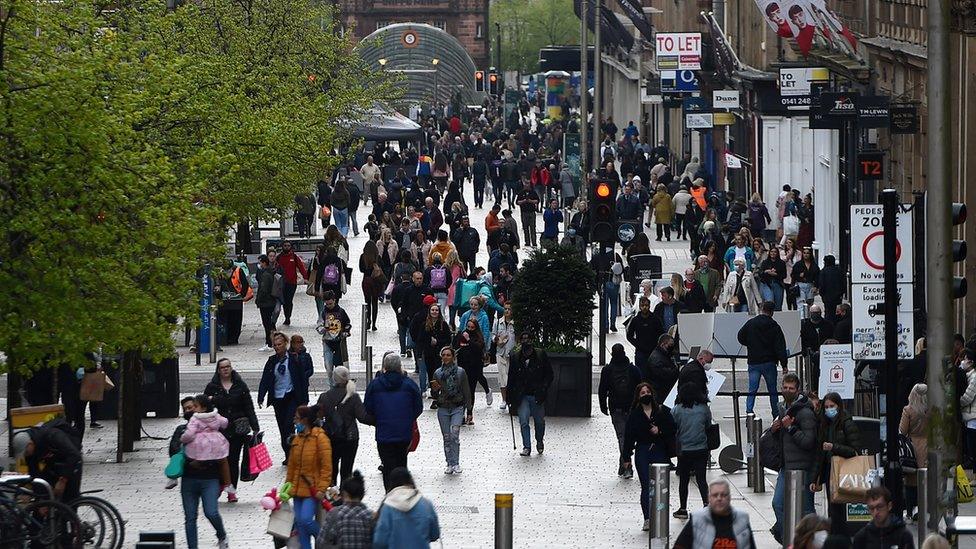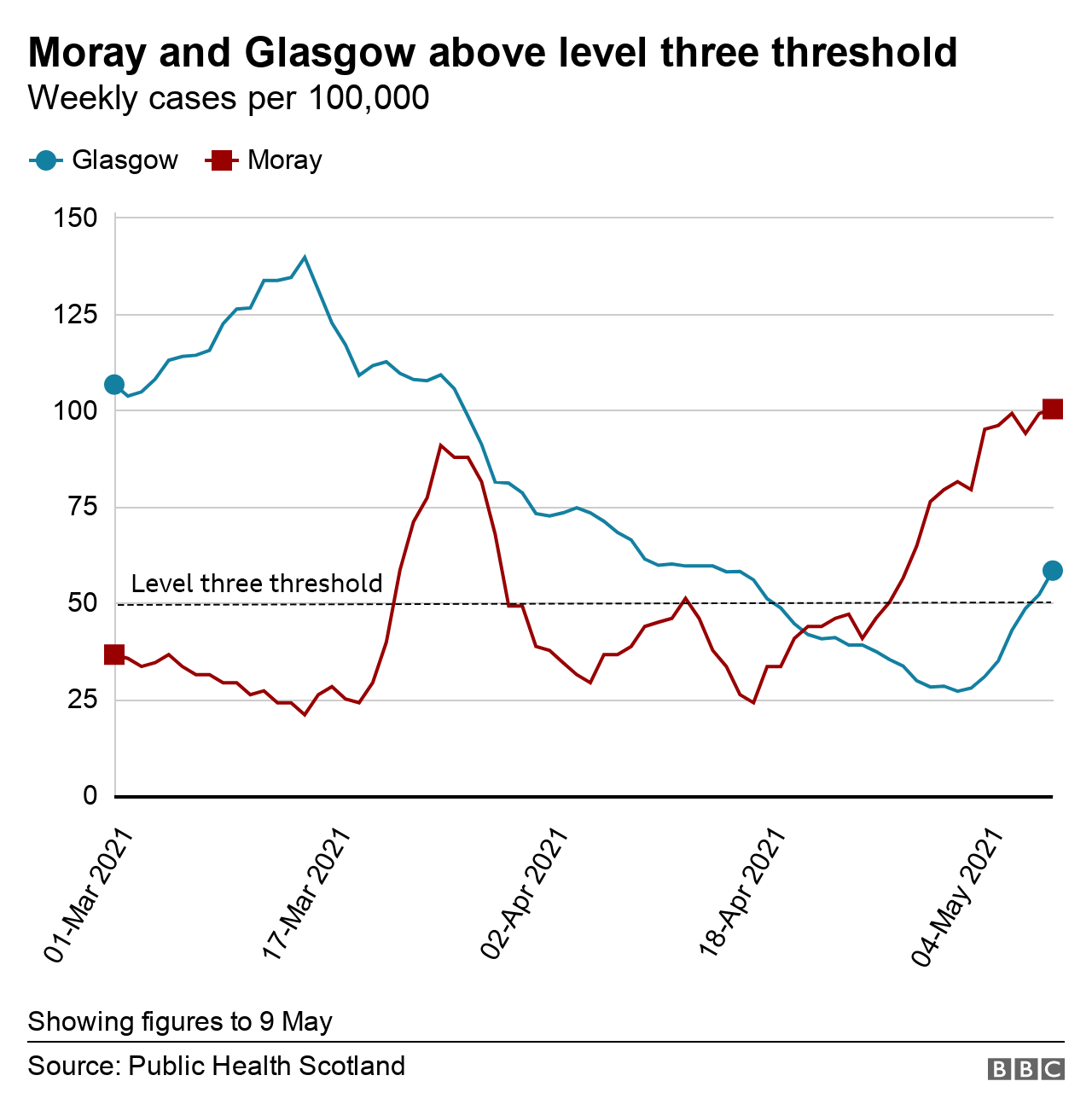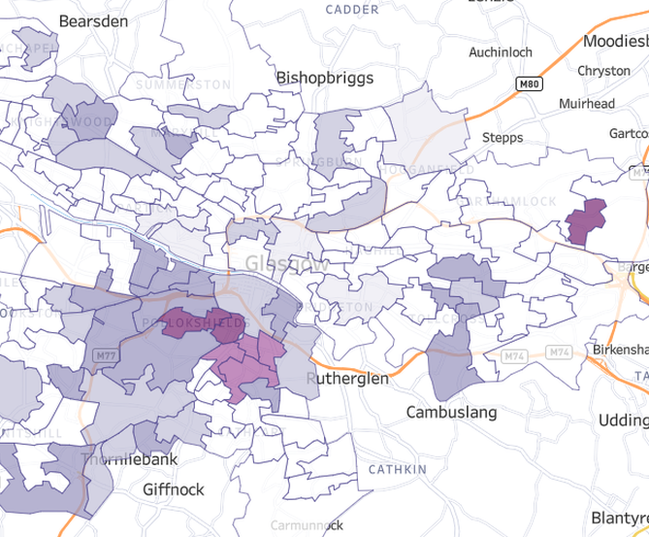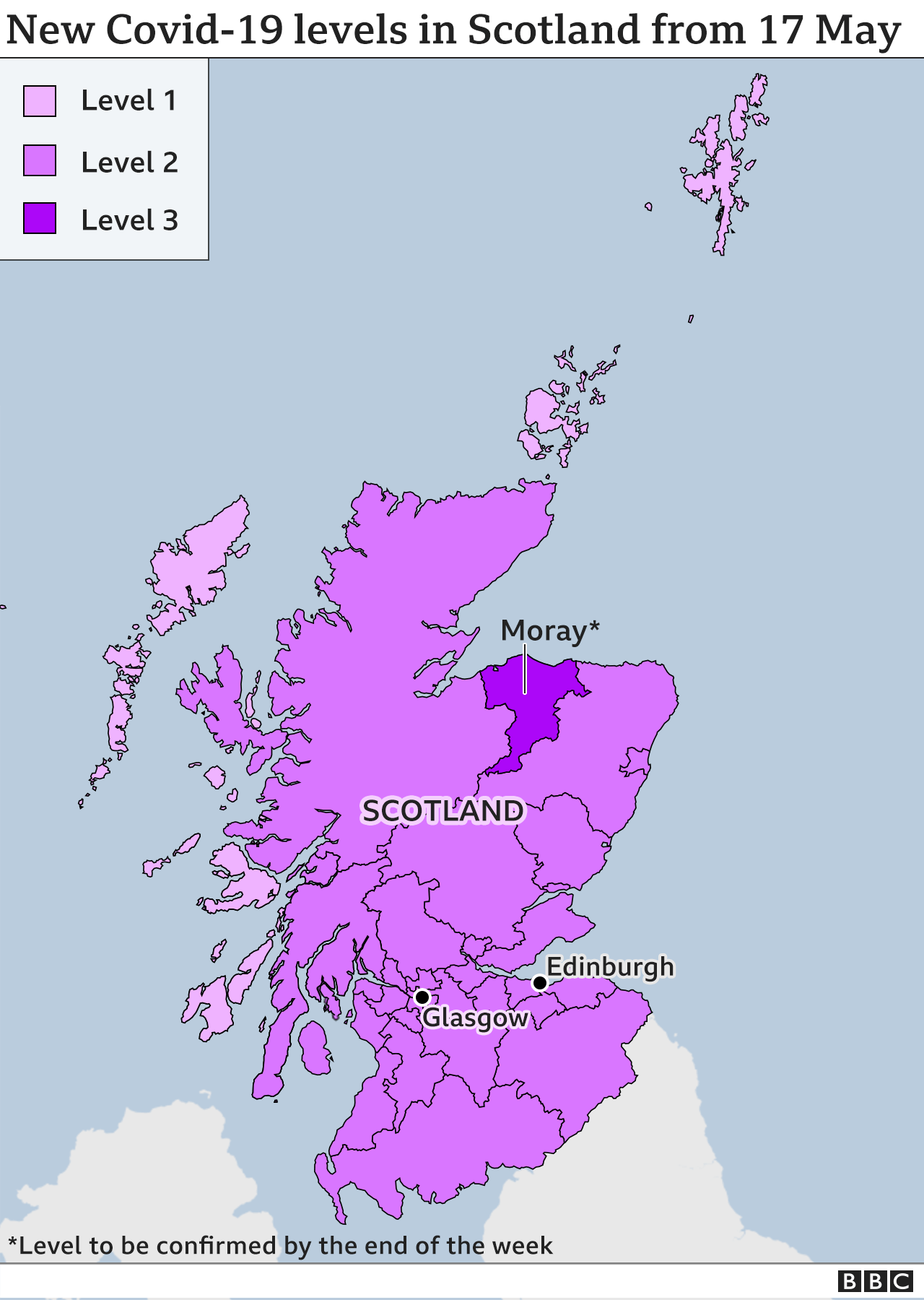Covid in Scotland: Concern over rising cases in Glasgow
- Published

Shoppers have returned to central Glasgow this month
Concern is growing about a rising number of Covid cases in Glasgow as the area prepares to move down to level two.
The latest published case rate is 58.3 per 100,000 population - well above a key threshold for easing restrictions.
A senior health official said there were clusters of high infection rates in parts of the city.
The so-called India variant is suspected to be involved, although this has yet to be confirmed.
All mainland council areas with the likely exception of Moray are due to move to level two on Monday.
Attention has been focused on a surge in cases in Moray although this increase appears now to be slowing.
Moray's latest rate stands at 100.2 per 100,000 population, almost five times the Scotland-wide average, according to Public Health Scotland (PHS).
Glasgow, however, has also seen a steady rise, and is now above 50 cases per 100,000 population - one of the benchmarks for deciding if level two or level three restrictions are appropriate. Other factors taken into account include the ability of the local NHS to cope.
Scotland's clinical director, Prof Jason Leitch, told BBC Scotland's The Seven that the case rate in Glasgow has been rising for the last five or six days.
He said he was concerned but he was confident Glasgow would still be able to move to level two as hospital admissions, intensive care and mortality remained low.
"The doesn't mean I'm complacent," he said. "In fact I want to encourage people to follow the rules tonight, tonight over the weekend, into Monday and then the new rules on Monday.
"And any suggestion that people should gather in groups, or march or parade or anything that breaks rules - please don't do that because Glasgow is at a fragile moment."

Linda de Caestecker, director of public health at NHS Greater Glasgow and Clyde, said she "anticipated" that Glasgow would still move to the lower level.
But she said officials were carefully monitoring case rates in particular districts such as Pollokshields and Battlefield in the south of the city.
While the figures published by Public Health Scotland relate to three days ago, she told BBC Radio Scotland's Drivetime the most recent data was indicating a city-wide rate of 74 cases per 100,000.
Asked what was driving the increase, she told BBC Scotland: "It seems particularly to be household mixing.
"We know that restrictions are going to be lifted in a few days' time and I do understand people thinking if we can do it on Monday, why can't we do it now. But it is people mixing together in households that we think is the source of this increase."
Ms Caestecker said some upturn in case numbers was to be expected as restrictions eased, but she was "concerned" about the increase in Glasgow.
"It shows we cannot be complacent. The numbers go up very, very quickly - particularly as we see new variants coming in that are more transmissible," she said.
A proportion of the cases in Glasgow are suspected to involve the Indian variant though this has still be confirmed through genomic sequencing.
"What we know is that it's not the Kent variant, so the assumption is it's the Indian variant but we haven't got the sequencing yet so we can't be sure," she said.

The PHS heat map indicates the highest case rates are in the south of Glasgow and Easterhouse in the east.
Nicola Sturgeon announced on Tuesday that all mainland council areas would move to level two next week, with the exception of Moray where a final decision on whether it should remain in level three is to be made on Friday.
Level two rules mean people can meet up inside homes, pubs and restaurants can sell alcohol indoors and venues such as cinemas can reopen.
The previous major relaxation of Covid restrictions was on 26 April when non-essential shops and hospitality businesses reopened.
The impact of the easing of restrictions tends to show up in the figures about a fortnight later because of the incubation period of Covid-19 which is five to six days on average but can be as long as 14.
Clackmannanshire has also seen rising Covid rates recently, currently just below the 50 case threshold, with provisional data from PHS indicating the figure will rise further in the coming days.
Midlothian, currently with 36 cases per 100,000, is another local authority area where case rates appear to be on the rise.



